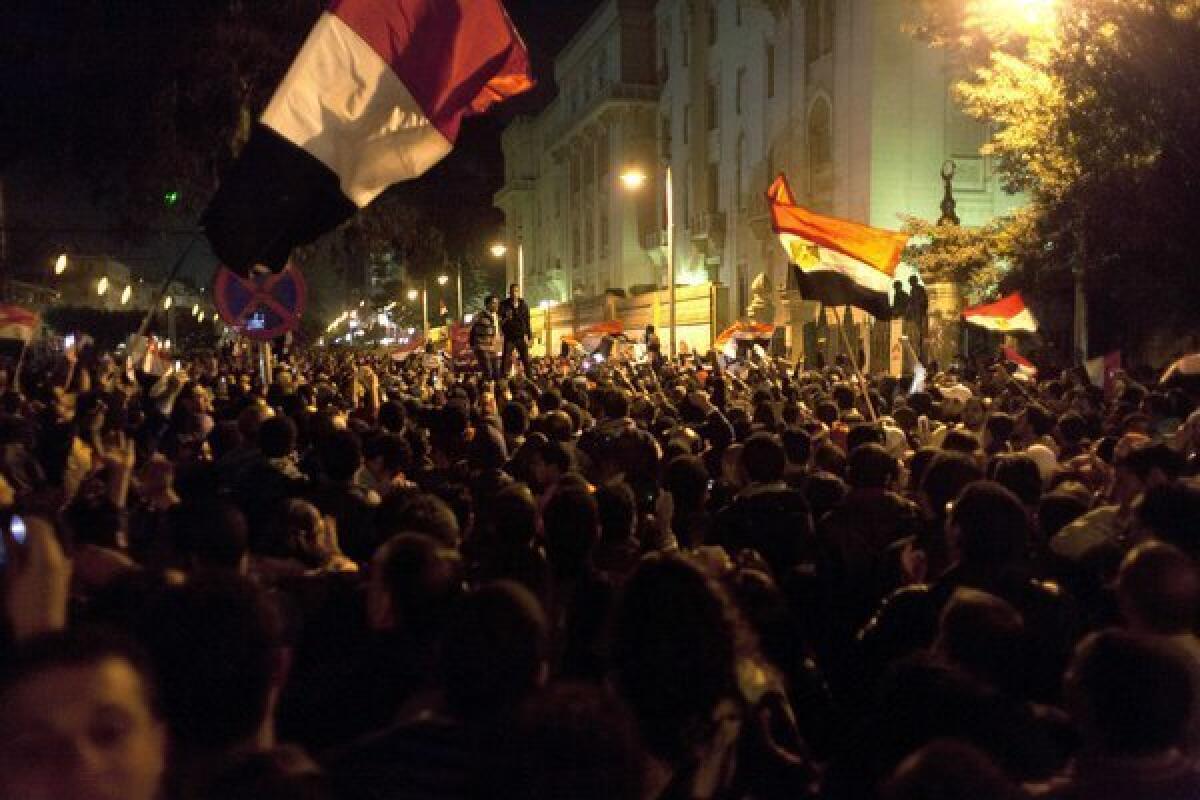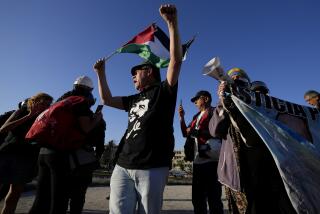Egyptâs political fault lines shaken by rival protests in Cairo

CAIRO -- Egyptâs volatile political fault lines were shaken Tuesday as rival protests echoed across Cairo over the fate of an Islamist-drafted constitution to shape the nationâs identity nearly two years after the overthrow of Hosni Mubarakâs autocratic regime.
Thousands of Islamist supporters of President Mohamed Morsi rallied at a mosque in the capital to back a constitutional referendum set for Saturday. Several miles away, mainly secular opposition groups marched toward the barricaded presidential palace in what appears to be an increasingly improbable task to block the vote and force Morsi to order the writing of a new charter.
The two sides, viscerally passionate and far from compromise, symbolized the divisiveness over the countryâs political future and the power held by Morsi and his allies in the dominant Muslim Brotherhood. Liberals and secularists fear the proposed constitution overshadows civil rights and marks a gradual evolution toward sharia, or Islamic law.
âWe are not ready to vote on the constitution,â said Nadia Radwan, a university professor protesting at the palace. âThe writing of the constitution itself is vague. We need experts and lawyers to ... inform people and interpret the laws. There might be another confrontation with the Brotherhood. They wonât let this go easily.â
But the Brotherhood and its ultraconservative fringe are adamant in a mission to impose religion on public life after decades of secular autocratic rule. That strategy is also the central aim of Islamists in Tunisia, Yemen and Libya after uprisings that have recalibrated the regionâs politics and revived the long-suppressed debate over the balance between democracy and political Islam.
âThe opposition isnât just rejecting Morsi. They want to bring down the state and destroy religion,â said Hamed Ahmed Khalil, a carpenter. âIâm an uneducated man, but I have looked through the constitution and I see nothing wrong with it. Morsi must stand strong against the traitorous opposition and the Jews who want to bring down this country.â
Violence has marred much of the last two weeks. Nine anti-Morsi protesters were injured when unknown gunmen attacked in Tahrir Square early Tuesday. At least eight people have been killed and hundreds have been injured in recent clashes between Islamists and opposition groups. Opposition members, including former government officials, have been attacked and beaten by Brotherhood supporters.
Since his Nov. 22 decree that expanded his powers, Morsi has offered concessions and scaled back some of his authority. But he has refused to meet the oppositionâs main demand of postponing the referendum. Morsi has said a constitution is needed to advance Egyptâs political transition, but his opponents say the document was rushed and marked by references to sharia that could be exploited by religious conservatives
ALSO:
Numbers of Syrian refugees climb as winter nears
Prominent female official in Afghanistan assassinated
Nelson Mandela âdoing well,â to undergo more medical tests
More to Read
Sign up for Essential California
The most important California stories and recommendations in your inbox every morning.
You may occasionally receive promotional content from the Los Angeles Times.









